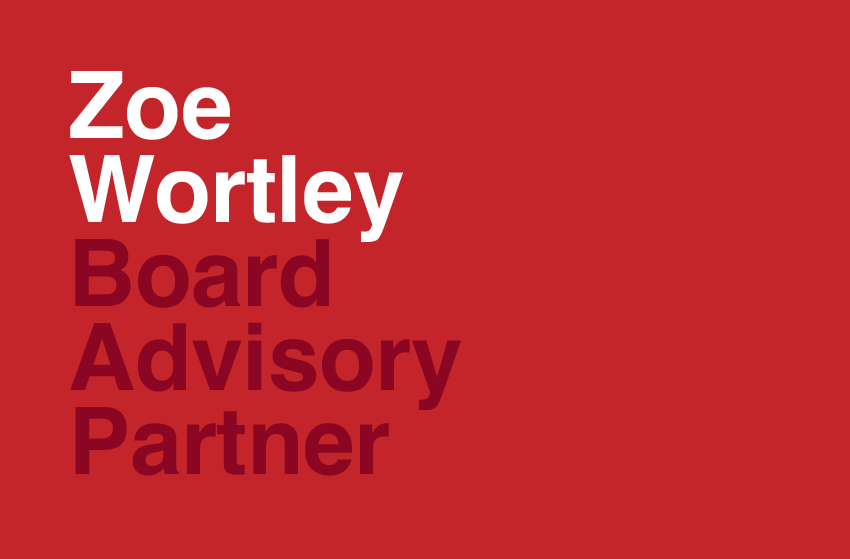Diversity is key to any modern Boardroom but concentrating on only one form of diversity isn’t enough; a Board should represent every aspect of the organisation or community it represents. Evidently, a diverse Board is better positioned to understand its customer base and the business environment in which it operates. Even more importantly, to ensure diverse Boards are effective, Boards need to have a culture that elevates different voices, integrates contrasting insights, and welcomes conversations about diversity.
There’s a place for everyone – a balanced board
For a board to be highly effective, there needs to be a balance of skills, expertise and lived experience. More recently, those with lived experience, a lower age profile and greater diversity have been highly sought after, however that doesn’t mean that experience and professional skills are any less important. In our experience finance, HR, digital, sustainability and environmental expertise, customer insight, regulatory, risk management, compliance etc. are all high on the list of requirements currently as organisation undergo reform and restructure.
The value of lived experience
Complementing the appropriate mix of skills and expertise, organisations want a representative of board members who live and work in the communities they serve, who appreciate the community challenges, bring valuable cultural understanding and see the difference that a progressive anchor organisation can make. Progressive boards now actively look for candidates who bring lived experience and offer valuable insight and knowledge to contribute as well as appropriate challenge to discussion and decision making. These candidates can often be younger, first time Non-Executive Directors (NEDs), who have most likely never previously considered joining a board.
Experience versus no experience
Increasingly, more organisations are putting positive measures to better attract, develop and retain board members who bring both deep expertise and lived experience. . These measures include:
- Hosting evening board meetings, making them more accessible to those in full-time employment;
- Recruitment processes that promote greater engagement with specific diverse groups
- Offering more comprehensive induction programmes – not just a quick tour of the office;
- Skills gaps not being seen as a reason to decline candidates, instead they form part of a training and development plan;
- Giving more clarity around the value an appointee can bring in terms of insight and knowledge or community representation, in addition to professional specialisms.
- Creating informal mentoring schemes or more formal board apprentice programmes
This more comprehensive approach means that organisations are well placed to take on, first-time board members where there will be a learning curve, enabling them to take advantage of their enthusiastic hunger to learn and their fresh perspectives.
Sector versus non-sector
We are frequently asked whether the public sector is genuinely open to non-sector candidates. The majority of boards are very clear on this. Yes, they do need public sector expertise, but groupthink can be avoided by ensuring a balance of knowledge and expertise from a spectrum of private, public and third sector backgrounds. This sector agnostic approach also builds board diversity in its broadest sense.
2022 and beyond
Many Codes of Governance have been reviewed in recent times, with increased emphasis placed on the responsibilities of boards and governing bodies or councils. These changes are echoed across public services and higher education, creating an increased demand for support in reviewing current governance arrangements, from skills audits and support in developing succession plans to full end-to-end governance review processes. Encouragingly in our Executive Search practice we are seeing an increase in the requirement for well informed, strategic NED recruitment processes that support clearly understood skills maps and succession plans, demonstrating a more sophisticated and informed approach.
Succession planning
As a result of this surging demand for a diverse pool of NEDs, and recognition that all boards have churn with members approaching their maximum term of office each year, many boards are pro-actively planning for the future by co-opting candidates of interest onto committees and seeking to ‘grow their own’. Not only does this support succession planning and help smooth out rapid learning curves, but it also gives first time NEDs invaluable insight into the non-executive role to make sure it’s what they expected and want.
Skills Gap Analysis
Increasingly, we are being asked to support boards via the development of modern, forward-thinking skills matrices that help identify the skills needed to deliver of current and future strategic objectives. The support we can offer across a range of sectors – from regulators such as Homes England to financial institutions such as The Bank of London – provide not just a focus on the skills and experience needed to oversee the organisation, but a lens also on the behaviours and culture that are the foundations for a high performing board. Align this analysis with effective succession planning, focused search and recruitment, and well-informed board development and the recipe is there for developing the modern boards that will lead organisations into the future.
If you would like advice on how to shape a more diverse board or quantify the skills and behaviours you have vs those you will need in the future, then contact Zoe Wortley .
